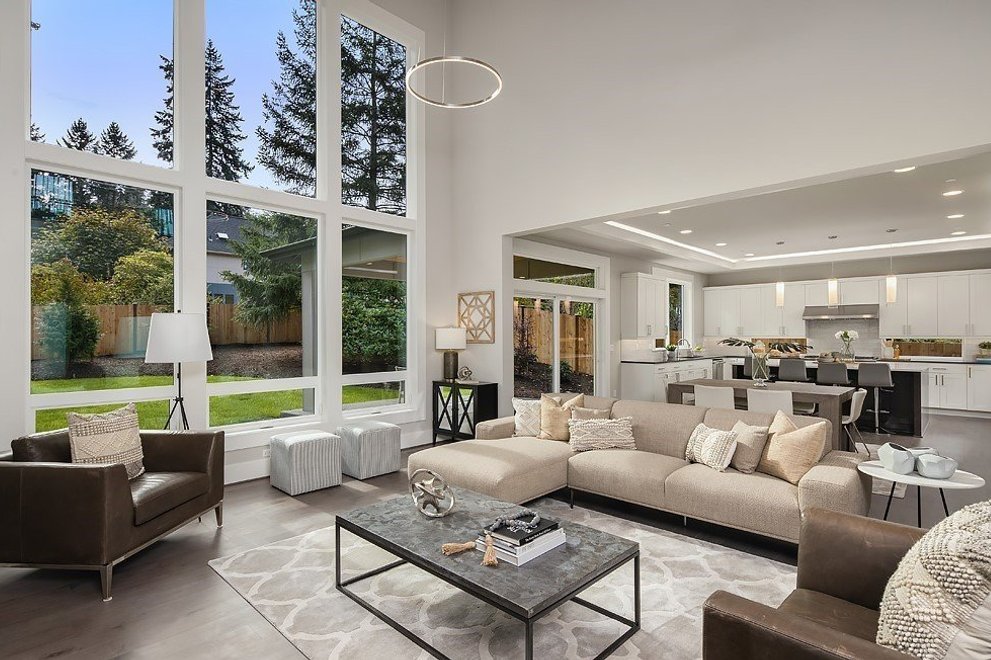Benefits and Considerations of Buying a Home
Benefits:
Equity Building: Each monthly mortgage payment helps you build equity in your property, gradually increasing your ownership stake and financial investment in your home.
Appreciation Potential: Historically, real estate generally appreciates over time. As home values rise, your property could become more valuable, potentially increasing your return on investment.
Financial Benefits: Homeownership often provides financial advantages such as access to preferential credit terms and lower interest rates on loans due to the increased financial stability and asset value associated with owning property.
Predictable Payments: With a fixed-rate mortgage, your monthly payments remain consistent throughout the loan term, making it easier to budget and plan your finances without worrying about fluctuating interest rates.
Retirement Asset: The equity you build in your home can be a valuable part of your retirement plan. It can be accessed through options like home equity lines of credit (HELOCs) or when selling the property.
Personalization and Control: Homeownership allows you to modify and enhance your living space according to your personal tastes and needs. You have the freedom to renovate, decorate, and maintain the property as you see fit.
Considerations:
Increased Responsibility: Owning a home involves greater responsibility compared to renting. You are responsible for all aspects of maintenance, repairs, and property management, which can be time-consuming and require additional effort.
Additional Costs: Beyond the mortgage, homeownership includes other expenses such as property taxes, homeowner’s insurance, maintenance and repair costs, utilities, and potentially homeowners association (HOA) fees.
Maintenance and Repairs: As a homeowner, you are responsible for maintaining the property and handling repairs. This can involve significant time and financial investment, especially if issues arise unexpectedly.
Market Risks: While real estate can appreciate, it is also subject to market fluctuations. Economic downturns or changes in the housing market can impact property values and your investment.
Long-Term Commitment: Purchasing a home is a long-term commitment. Consider your plans for the future and whether you anticipate staying in the area for an extended period before making a purchase.
Liquidity Concerns: Unlike other investments, real estate is not a liquid asset. Selling a property can take time, and the process might not always align with your financial needs or timelines.
Impact on Mobility: Homeownership can affect your flexibility to move. If your job or lifestyle requires frequent relocations, owning a home may be less advantageous compared to renting.
In summary, while buying a home can be a rewarding and financially advantageous investment with the potential for appreciation and personal satisfaction, it also requires careful consideration of the associated responsibilities, costs, and long-term implications. Weighing these factors will help you determine if homeownership is the right choice for you.

Renting: Comprehensive Overview
Benefits:
Flexibility: Renting offers significant flexibility, especially when it comes to relocating. With typically shorter lease terms (often one year), you can easily move if your circumstances change, whether due to job relocation, lifestyle changes, or personal preferences.
Maintenance and Repairs: One of the major advantages of renting is that you are not responsible for most maintenance and repair tasks. Landlords or property management companies handle these issues, which can save you both time and money and reduce the stress associated with property upkeep.
Lower Upfront Costs: Renting generally involves lower initial financial outlays compared to buying a home. Instead of a large down payment, you usually need to cover a security deposit and the first month’s rent. This makes renting a more accessible option for those who might not have significant savings or are not ready for the financial commitment of purchasing a home.
No Property Taxes: Renters are not responsible for paying property taxes, which can be a considerable expense for homeowners. This can lead to overall cost savings and financial ease.
Accessibility for Lower Credit Scores: Renting can be a viable option for individuals with lower credit scores or financial instability, as rental requirements are often less stringent than those for securing a mortgage. This can provide a pathway to stable housing without the stringent financial criteria of homeownership.
No Long-Term Commitment: Renting typically involves shorter-term commitments. If your life circumstances or financial situation changes, you can often choose to not renew your lease or find a new rental property without the long-term obligations tied to homeownership.
Predictable Housing Costs: Rental payments are fixed for the duration of the lease, providing predictable monthly housing expenses. This can simplify budgeting and financial planning.
Considerations:
Limited Personalization: Renting often means less freedom to make changes to your living space. Landlords may restrict alterations such as painting walls, installing new fixtures, or making other modifications. This can limit your ability to personalize your home to your taste.
No Equity Building: Rent payments do not contribute to ownership or equity in the property. Unlike mortgage payments, which build equity and contribute to ownership, rent is a recurring expense with no return on investment in terms of property value.
Stability Concerns: Renting can be less stable compared to owning. Landlords may choose to sell the property, make significant renovations, or move in themselves, which can lead to an end of your lease and potential relocation.
No Appreciation Gains: Renters miss out on potential gains from property appreciation. As property values increase, homeowners benefit from the rising value, while renters do not gain from these increases.
Limited Privacy: While landlords typically require notice before entering a rental unit, renters may still experience less privacy than homeowners. Landlords may also have access to common areas and the property’s exterior, which can affect your sense of privacy.
Lease Agreement Terms: The terms of a lease can impact your living situation. Renters must adhere to lease conditions, which may include restrictions on the length of stay, subletting, or modifications to the property. Lease renewals and changes can also impact stability.
Potential Rent Increases: Rental rates may increase with lease renewals or changes in the rental market. This can impact your budget and housing affordability over time.
Responsibility for Rent Payments: Failure to meet rent payments can lead to eviction and legal issues. Unlike homeowners, who can manage mortgage payments over time, renters must ensure timely payment to avoid potential problems.
In summary, renting provides flexibility, lower upfront costs, and minimal responsibility for property maintenance. However, it also comes with limitations such as no equity building, restricted ability to personalize, and potential instability. Understanding these factors can help you make an informed decision about whether renting aligns with your current and future housing needs.















